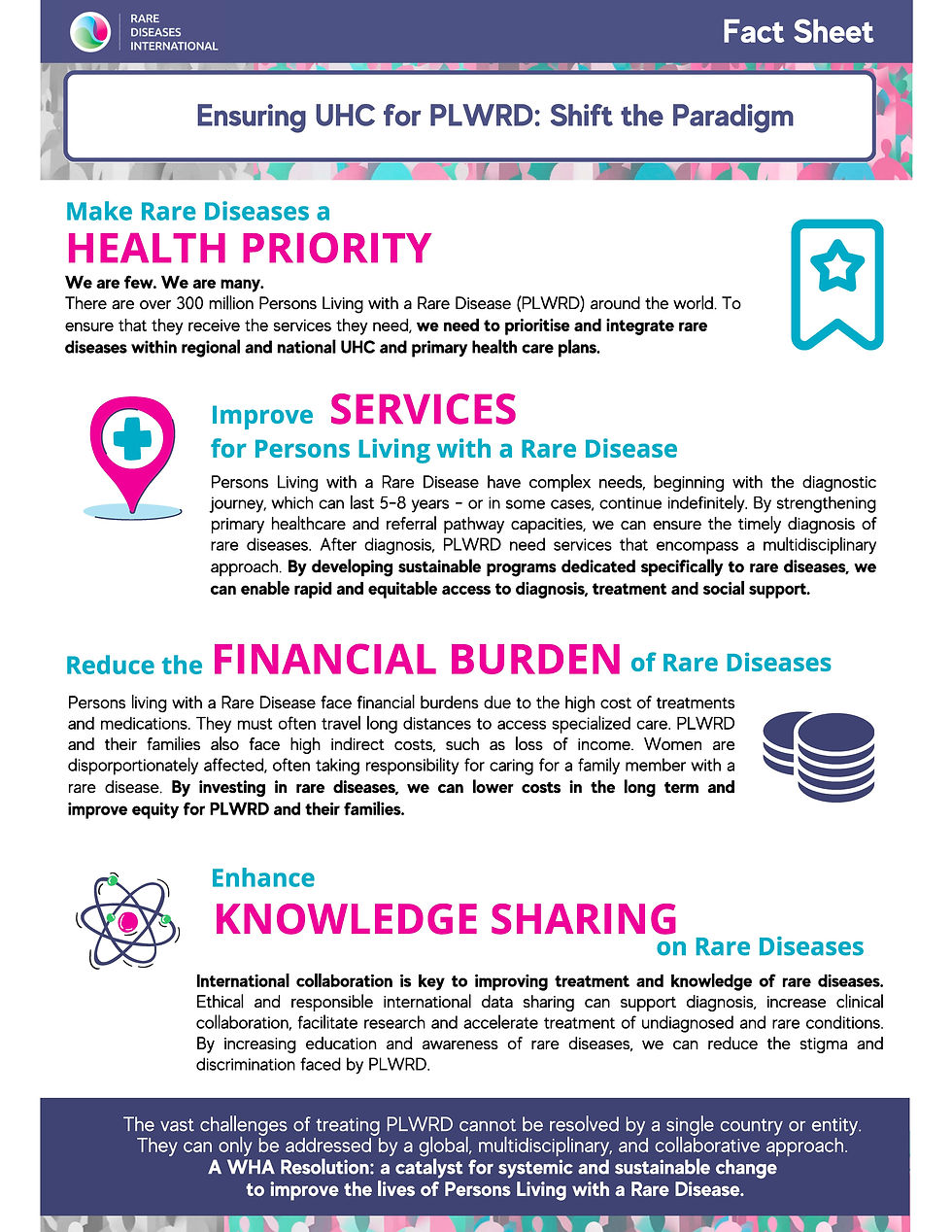Johannesburg, South Africa – 12 February 2025

Rare Diseases South Africa (RDSA) proudly welcomes the historic decision by the World Health Organization (WHO) Executive Board to recommend the adoption of the World Health Assembly (WHA) Resolution on Rare Diseases to the 78th World Health Assembly (WHA) in May 2025. This significant milestone marks a global commitment to improving healthcare access, diagnosis, and treatment for the 300 million people worldwide affected by rare diseases, including thousands of South Africans who struggle with inequitable access to care.
The WHA Resolution on Rare Diseases, championed by Rare Diseases International, underscores the urgent need for integrated national health policies, improved rare disease registries, enhanced research and development, and greater support for patients and caregivers.
With 26 Member States co-sponsoring the resolution and 224 organizations across the globe (including Rare Diseases South Africa) uniting in a Coalition to support it, this strong momentum reflects the growing recognition of rare diseases as a global health priority.
A Breakthrough for South African Rare Disease Patients
For the 1 in 15 South Africans impacted by a rare disease who often face delayed diagnoses, high treatment costs, and limited access to therapies, this recommendation is a game-changer. If formally adopted by the WHA in May, it will provide a global framework for action, compelling governments—including South Africa’s—to develop sustainable strategies for rare disease care.
“This is an extraordinary step towards recognition, equity, and access for people living with rare diseases,” said Kelly du Plessis, CEO of Rare Diseases South Africa. “For too long, rare disease patients in South Africa have been invisible in the healthcare system. This resolution gives us a powerful platform to advocate for policy reform, dedicated funding, and improved healthcare infrastructure for rare conditions.”

What This Means for South Africa
The recommendation aligns with RDSA’s long-standing advocacy efforts and presents an opportunity for South Africa to:
Integrate rare disease care into universal health policies, including National Health Insurance (NHI) planning.
Strengthen early diagnosis and newborn screening programs.
Improve treatment access through innovative funding models and public-private partnerships.
Foster data collection and research to support better policymaking.
Ensure greater patient representation in healthcare decisions.

A Call to Action
As we celebrate this victory, RDSA urges the South African government, policymakers, and healthcare stakeholders to seize this opportunity and take immediate steps towards national implementation.
We call on all partners, industry leaders, and patient advocates to join us in ensuring that South African patients benefit from this global momentum.
RDSA remains committed to working with RDI, WHO, government bodies, and international rare disease networks to drive meaningful change for the rare disease community in South Africa.
If you missed the Executive Board meeting but would like to relisten to the discussion and decisions, you can rewatch the Executive Board meeting sessions via this link. The WHA Resolution on Rare Diseases was discussed during Session 4, 5, and 18 under agenda item 6 (UHC).


Comments